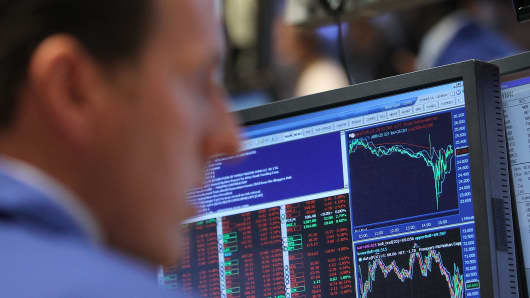Regulators moved to install trip mechanisms that shut down trading if similar patterns repeat, and for the most part they have worked.
But it's clear the machines have taken over, and with that will come mistakes that only machines can make.
"Flash crashes will occur and it will happen again," said Todd Schoenberger, managing director at LandColt Capital. "If you are a retail investor, you're always going to look at the market with a cautious eye because you're going to be nervous over whether Wall Street has your best interests in mind."
Most recently, the market endured a flash crash social media-style.
An April 23 post on The Associated Press' Twitter feed indicated that two explosions had occurred in the White House, injuring President Barack Obama. The report triggered a brief but aggressive market sell-off that reversed itself when it quickly came to light that the AP Twitter feed had been hacked and the post was a hoax.
(Read More: This Is the Worst Thing About Fake-Tweet Stock Dive)
Over the years, many companies have seen shares plunge and spike due to little else than the vagaries of the electronic high-speed trading that has come to dominate the market.
The cumulative result: Little in terms of actual stock value, but much in terms of market credibility
"You have 60 percent of America invested in the market either directly or through 401(k) or pension plans. That means six of every 10 are vulnerable to a flash crash, and the only way to reduce or eliminate that risk is just not to be invested at all," Schoenberger said. "And that's not an option, either."
Indeed, while there has been drop in market trading volume, simply sitting out of the market has been an expensive form of protest.
Despite all the hoopla over the initial crash and its smaller cousins, the Dow is up a staggering 42 percent since the initial event.
(Read More: The Economy May Stink, but the Market Doesn't Care)
And for how scary it may have been, the term "flash crash" seems much more significant to market insiders than it does the typical investor.
"The market's moved past it. The Flash Crash came and went so quickly that, other than being a news event, most retail clients would not have even noticed it," said Mitchell Goldberg, president of ClientFirst Strategy.
Even the AP Twitter event seems to have faded from public consciousness.
"It was kind of like watching a boxing match," Goldberg said. "You get set, you get your pretzels and your beverage, you put your beverage down on the floor, you look up and the fight's over."





